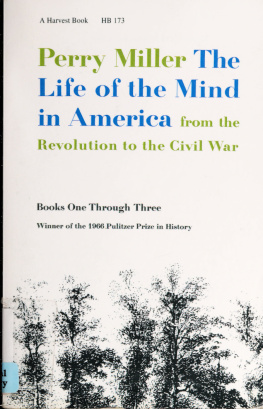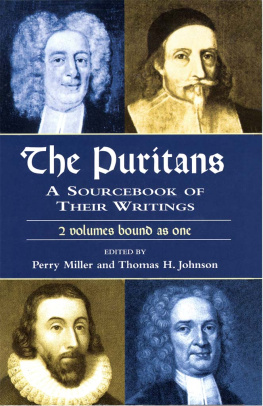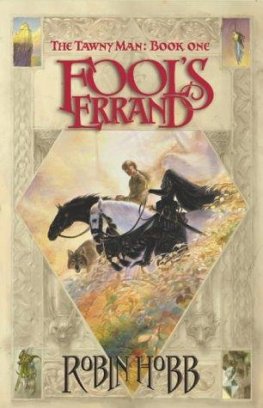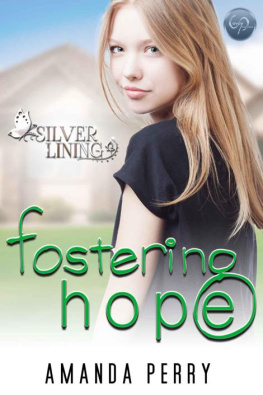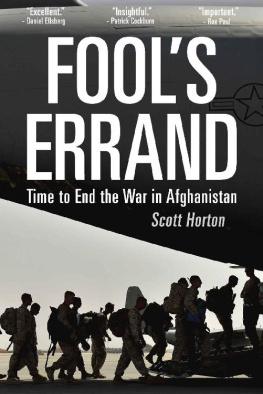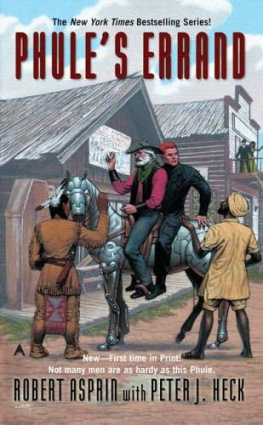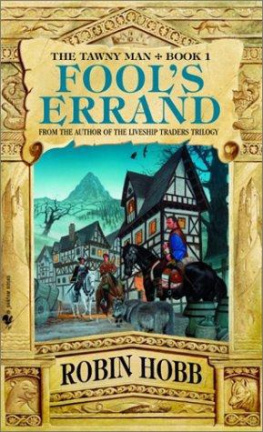PREFACE
If for twenty-five years a man writes out of steady application to a single theme if, that is, the theme itself be sufficiently spacious he discovers that he has wrought out a consistency he could hardly have formulated at the beginning. Not that I have avoided publishing articles, and many sentences, which I wish I had not. I have failed myself much more often than have the scholars I emulate. A few of my more egregious lapses I have silently expunged for this edition. However, certain of my gaffes are so much a part of the record that, assuming the record be worth preserving, I let them stand, with prefatory warnings that readers may fully profit by my mistakes.
Omitting, for reasons both of space and policy, works of which I am downright ashamed, along with others that I recast into chapters for either volume of The New England Mind (The Seventeenth Century, 1939, 1953; From Colony to Province, 1952), I here put together those that seem to add up to a rank of spotlights on the massive narrative of the movement of European culture into the vacant wilderness of America. is an exception, for reasons given in the comments that precede it.)
To the elucidation of this story I, in common with several historians of my generation, have devoted my life; to this investigation, I dedicate what remains of it. These papers, along with three or four books, are all I have yet been able to realize of a determination conceived three decades ago at Matadi on the banks of the Congo. I came there seeking adventure, jealous of older contemporaries to whom that boon had been offered by the First World War. (Nobody had the prescience to teach me patience, to assure me that I too should have my War.) The adventures that Africa afforded were tawdry enough, but it became the setting for a sudden epiphany (if the word be not too strong) of the pressing necessity for expounding my America to the twentieth century.
Unfortunately (perhaps), such was the nature of the disclosure as to convey an invincible conviction that however valuable as documentation might be the mass of work being accomplished by those I may call social historians, they were not getting at the fundamental themes or anywhere near the fundamental theme, assuming that such a theme even exists. I am the last to decry monographs on stoves or bathtubs, or tax laws, banks, the conduct of presidential elections, or even inventories of artifacts. All this is the warp and woof of American history. Just as we cannot grasp the French Revolution without knowing how the taxes were farmed, nor can we comprehend the Russian without learning as much as we may of the land system, so it is true that the outside world cannot judge America unless it knows about the Wilmot Proviso and the chain store. Even so, I was condemned to another (I do not say a better) sort of quest.
To bring into conjunction a minute event in the history of historiography with a great one: it was given to Edward Gibbon to sit disconsolate amid the ruins of the Capitol at Rome, and to have thrust upon him the laborious work of The Decline and Fall while listening to barefooted friars chanting responses in the former temple of Jupiter. It was given to me, equally disconsolate on the edge of a jungle of central Africa, to have thrust upon me the mission of expounding what I took to be the innermost propulsion of the United States, while supervising, in that barbaric tropic, the unloading of drums of case oil flowing out of the inexhaustible wilderness of America.
However it came about, the vision demanded of me that I begin at the beginning, not at the beginning of a fall (wherein Gibbon had an artistic advantage, which he improved to the utmost), but at the beginning of a beginning. Once I was back in the security of a graduate school, it seemed obvious that I had to commence with the Puritan migration. (I recognize, and herein pay my tribute to, the priority of Virginia; but what I wanted was a coherence with which I could coherently begin.) One or two of my instructors warned me against throwing my career away: that field, they said, was exhausted, all that wheat had long since been winnowed, there was nothing but chaff remaining. I might have abandoned the mission, persuaded that my voices had misled me, had not Percy Holmes Boynton sustained me. He did this, I now suspect, not so much because he believed that in this area more was needed from scholarship, but simply because he held that a boy should be allowed to do what the boy genuinely, even if misguidedly, is convinced should be done. I attested my debt by dedicating to him Orthodoxy in Massachusetts, in 1933; but I could not offer this collection without again, though Boynton is no longer in hearing distance, telling how much I owe him.
Assuredly the works of my senior colleagues, Kenneth Ballard Murdock and Samuel Eliot Morison, with some possible assistance of my own volumes, have shown how stultifying was that conception of Puritan history which had settled like a cloud of patriotic obscurantism over historians of a generation ago. In the 1920s a few strident and derisive voices, such as those of H. L. Mencken and James Truslow Adams, got the vaporous mass to moving. I freely acknowledge the liberation I owe to such violators of the temple, for without them, I and my generation might have lacked the temerity to undertake a fresh and profane examination. I suppose the saddest comment I can make upon the whole enterprise is that, after three decades of endeavor, though we have shaken a few complacencies, we have not arrived at the comprehensive understanding we presumptuously proposed. Hence the exultation I feel at seeing younger scholars notably Edmund S. Morgan and Bernard Bailyn coming so grandly along. The one thing I am resolved never to say to a student is that any field of study is exhausted, that all the grain has been threshed. As for that interminable field which may be called the meaning of America, the acreage is immense, and the threshers few. Too often, as in my case, they are sadly deficient in the several skills required for the gigantic labor.
Despite the inadequacies of my technical training, my theme possessed me. What I believe caught my imagination, among the fuel drums, was a realization of the uniqueness of the American experience; even then I could dimly make out the portent for the future of the world, looking upon these tangible symbols of the republics appalling power. I could see no way of coping with the problem except by going to the beginning. Walt Whitman says, in a somewhat different context, that he commenced his studies, but was never able to get beyond the beginning. Considering that some reviewers have confounded my method with my materials, I may insist that what seized upon me and still directs me is the inner logic of the research. Certainly not not in any sense a personal predilection. The beginning I sought was inevitably being located in the seventeenth century theological. This was not a fact of my choosing: had the origin been purely economic or imperial, I should have been no less committed to reporting. Since the first articulate body of expression upon which I could get a leverage happened to be a body of Protestant doctrine, I set myself to explore that doctrine in its own terms.




